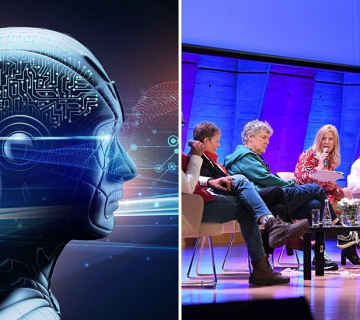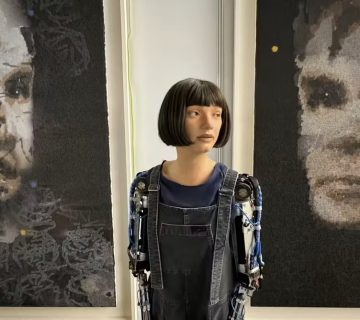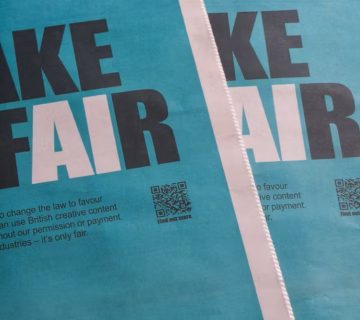In the past few years, artificial intelligence has hit mainstream consciousness as generative AI writing tools like ChatGPT and Claude.ai, and image generators like Midjourney and DALL-E became better and more broadly available. And people, companies, artists, musicians and even Hollywood studios, worked out how – or how not – to work with them.
In August 2022, Théâtre D’opéra Spatial, an artwork made using Midjourney, controversially won an art competition in the US for its creator Jason Allen, for example.
The proliferation of creative AI tools has ushered in urgent discussions over ethics, regulation and guardrails. The potential benefits of generative AI – such as augmented creativity and productivity gains – being weighed against the pitfalls, such as data privacy, copyright infringement and inaccuracy.
This has also been accompanied by the rise of FOBO – or the ‘fear of becoming obsolete’ – with more than a fifth of workers in the US worrying they might lose their jobs to emerging technology.
But research by the World Economic Forum shows AI will not only augment existing jobs, but will create others in entirely new fields.
AI ‘as a driving force for the economy and society’ was one of the key themes at the Forum’s Annual Meeting in Davos in January 2024, where artists, musicians and content creators joined discussions on how to navigate a creative future with AI.
Generative AI and Hollywood
In May 2023, the Writers Guild of America went on strike over pay, with concerns about AI coming to the fore.
In June, Indiana Jones and the Dial of Destiny was released in cinemas, showing 80-year-old Harrison Ford ‘de-aged’ with the help of an AI program.
And in July, members of the US actors’ union, SAG-AFTRA (the Screen Actors Guild-American Federation of Television and Radio Artists) went on strike for 118 days, with protections over AI being used to replace actors as the major sticking point.
Speaking at the Davos session Workers in Focus, SAG-AFTRA’S Chief Negotiator, Duncan Crabtree-Ireland, said AI “was a really important issue in our negotiations”.
“Our members are going to be on the tip of the spear in this area, especially voice actors, because the technical requirements of using generative AI with voice only are easier, and that makes it faster and simpler to implement.
“It’s going to have a significant impact and presence on the creative industries in general and the television, film and videogames industries.”
The SAG-AFTRA and Writers Guild strikes combined cost the industry more than $6.5 billion, but now an agreement has been reached, Crabtree-Ireland hopes other companies and industries can learn from it.
“It’s so important for us to remember that the decisions about the implementation of AI are not being made by AI, they’re being made by humans. It doesn’t have to just be corporate executives, these are decisions we should all make together, workers and society should have an important role in participating in that decision-making.”
“The creative industries are one example of an area where, if we don’t have that kind of human-centred approach to the implementation of AI, we run the risk of losing the heart and soul of the creative industries, their whole raison d’être.”
This article is part of: World Economic Forum Annual Meeting




No comment